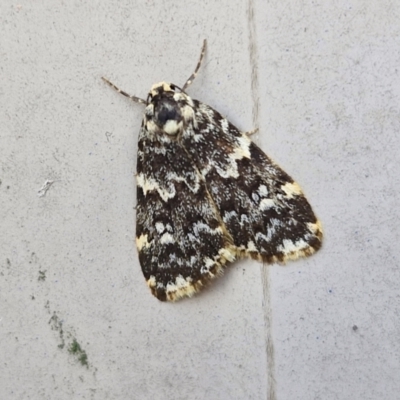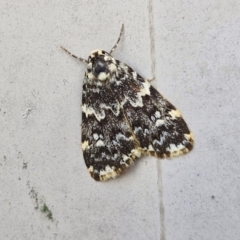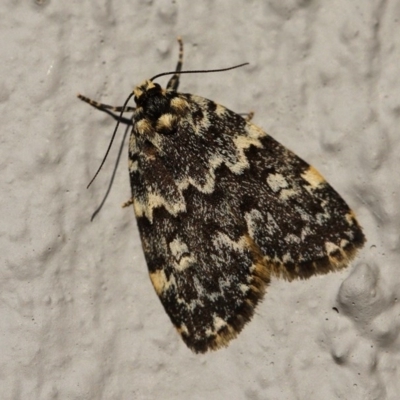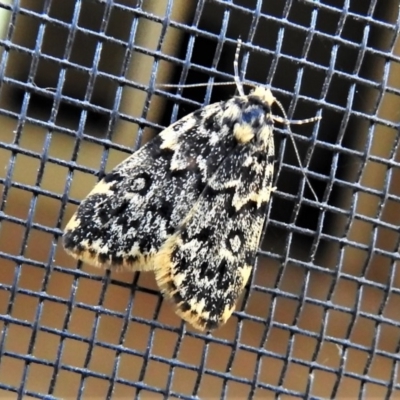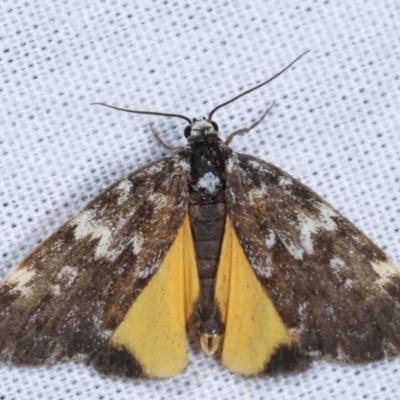Halone coryphoea (Eastern Halone moth)
Halone coryphoea and sinuata are similar moths that are difficult to distinguish on forewing alone. Halone coryphoea is larger on average, but the size ranges overlap. Halone sinuata usually has less prominent and yellower light markings. The hindwings give a more reliable distinction: in H. coryphoea there is a black patch below the apex that reduces to a narrow black line extending along the trailing edge to the tornus; in H. sinuata there is a similar black patch below the apex but another black patch just inside the tornus, with a black line along the remainder of the trailing edge. These hindwing marks are the same above or below the wing. H. coryphoea has been recorded more often in the ACT than H. sinuata.
Halone coryphoea is listed in the following regions:
Canberra & Southern Tablelands | Southern Highlands | South Coast | Hunter Region | New England | New South Wales North Coast
1 2
Species information
- Halone coryphoea Scientific name
- Eastern Halone moth Common name
- Not Sensitive
- Local native
- Non-invasive or negligible
- Up to 1410.27m Recorded at altitude
- Machine learning
- External link More information
Location information
-
Maps
Ainslie volcanic grassland ANBG ANU Baldessin Precinct Beowa National Park Braemar Bundanoon City Renewal Authority Area Cotter Reserve Emu Creek Flea Bog Flat to Emu Creek Corridor Genoplesium plumosum target area Goorooyarroo NR (ACT) Goulburn Mulwaree Council Hughes Grassy Woodland Katarina's garden Kosciuszko National Park Lower Molonglo Molonglo River Reserve Namadgi National Park Rugosa Sullivans Creek, Lyneham South Tidbinbilla Nature Reserve Wandiyali-Environa Conservation Area Wanniassa Hill Wingecarribee Local Government Area -
Places
Acton, ACT Ainslie, ACT Arakoon, NSW Aranda, ACT Belconnen, ACT Bolivia, NSW Braemar, NSW Bulli, NSW Bungonia, NSW Cook, ACT Florey, ACT Fyshwick, ACT Garran, ACT Goulburn, NSW Hall, ACT Higgins, ACT Hughes, ACT Lyons, ACT Melba, ACT Mitchell, ACT Pelican, NSW Stirling, ACT Thredbo, NSW Turner, ACT Wanniassa, ACT Weston, ACT Yass River, NSW










































